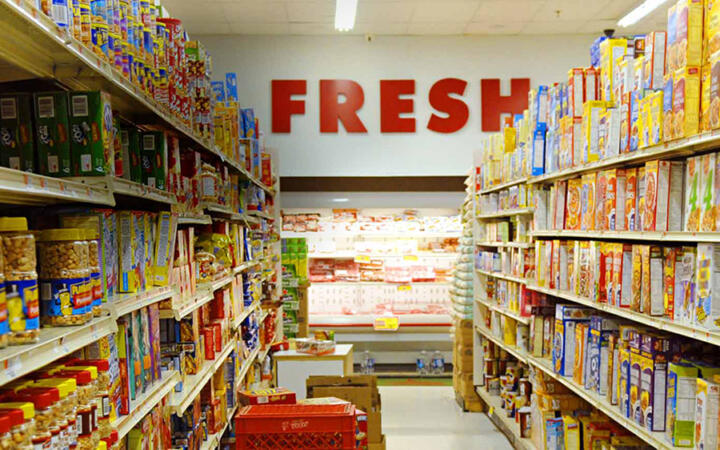The FMCG (Fast-Moving Consumer Goods) sector in Nigeria is currently navigating foreign exchange losses due to the ongoing challenges in exchange rates.
The period from June to September witnessed a substantial surge in the average exchange rate, escalating by approximately 20%. This shift was notable, as it elevated the exchange rate from an average of N634.56/$ in June to N761.33/$ in September. The trend has not abated and, as of October 19, 2023, the exchange rate stands at N859.73/$, signifying continued volatility and depreciation of the local currency.
The consolidation of the exchange rate into a single window on June 14, 2023, marked a significant transformation in Nigeria’s foreign exchange market. This led to a substantial increase in the exchange rate, rising from the official rate of approximately N462/$ in 2022 to N765/$ by June 2023. The abrupt and substantial depreciation of the local currency had adverse repercussions for major consumer goods companies in the country.

During the first half of 2023, prominent FMCG companies, including BUA Foods, Dangote Sugar Refinery Plc, NASCON Allied Industries Plc, Unilever Nigeria Plc, Nestle Nigeria Plc, Cadbury Nigeria Plc, PZ Cussons Nigeria Plc, Guinness Nigeria Plc, Nigerian Breweries Plc, and International Breweries Plc, collectively reported foreign exchange losses amounting to about N400 billion. This resulted in a cumulative pre-tax loss of N246 billion.
With the exception of BUA Foods, Unilever, and Nascon, the remaining companies reported foreign exchange losses, illustrating the widespread impact of exchange rate fluctuations on the FMCG sector in Nigeria.
As the third-quarter results approach, there is a growing concern that the trend of foreign exchange losses in the consumer goods sector may persist and potentially worsen. The substantial 20% increase in the exchange rate during the mentioned period underscores the clear and anticipated impact of these FX losses on the consumer goods sector in Nigeria.
Unilever, for instance, experienced a stark contrast in performance between the first half of 2023 and its Q3 results. While the company reported foreign exchange gains of N2.834 billion in the first half of the year, the recently released Q3 results revealed a different narrative. In the third quarter, the company recorded a loss related to exchange differences on bank accounts, amounting to N2.921 billion, significantly impacting the Q3 results.
Nestle Nigeria Plc, leading in net foreign exchange losses, bore the brunt of the Naira’s devaluation during Q2. The company reevaluated its foreign currency obligations, resulting in a significant exchange loss of N123.79 billion in H1 2023. This loss accounted for about 89.8% of the finance cost and played a significant role in the pre-tax loss of about N69 billion during that period.
Following Nestle’s experience, Nigerian Breweries also reported substantial foreign exchange losses of about N85 billion. In Q2 alone, Nigerian Breweries incurred a foreign exchange loss of N70.62 billion, contributing to the growth in finance costs and significantly influencing the N67.6 billion pre-tax loss in H1.
In the food product subsector, Dangote Sugar Refinery recorded a noteworthy figure in FX losses. The company faced approximately N83.1 billion in foreign exchange losses, marking a substantial year-on-year growth of about 1,587%. Dangote Sugar Refinery had to revalue its monetary assets and liabilities for its Nigerian operation, based on the prevailing market rate of N756/$ as of June 30, 2023, resulting in a considerable revaluation loss of N68.7 billion. This was primarily related to Letters of Credit and foreign vendor balances, also based on the N756/$ rate as of June 30, 2023.
The FX rate, which subsequently closed at around N769/$, is expected to exacerbate Dangote Sugar Refinery’s FX loss situation, further challenging the company’s financial performance.
Other companies within the beverages and brewing sub-sector, including Guinness and International Breweries, also reported net foreign exchange losses. International Breweries witnessed a combination of realized and unrealized foreign exchange gains and losses. In Q2, the company reported an unrealized net foreign exchange loss of N41.89 billion but managed to realize a net exchange gain of N7.97 billion in the same period. Consequently, this led to a net foreign exchange loss of N36.59 billion during the first half of the year.
PZ Cussons, while affected by foreign exchange losses, reported a loss of N4.954 billion. However, unlike other companies, this loss did not result in a pre-tax loss as the company still recorded a pre-tax profit of N19.87 billion, indicating a potential ability to navigate the challenges posed by exchange rate fluctuations.
The foreign exchange losses experienced by major consumer goods companies underscore the significant economic impact of exchange rate fluctuations in Nigeria. These challenges may persist and continue to affect the financial performance of FMCG companies unless effective strategies are implemented to mitigate the risks associated with exchange rate volatility. As the FMCG sector faces ongoing exchange rate challenges, it is essential for companies
Support InfoStride News' Credible Journalism: Only credible journalism can guarantee a fair, accountable and transparent society, including democracy and government. It involves a lot of efforts and money. We need your support. Click here to Donate
